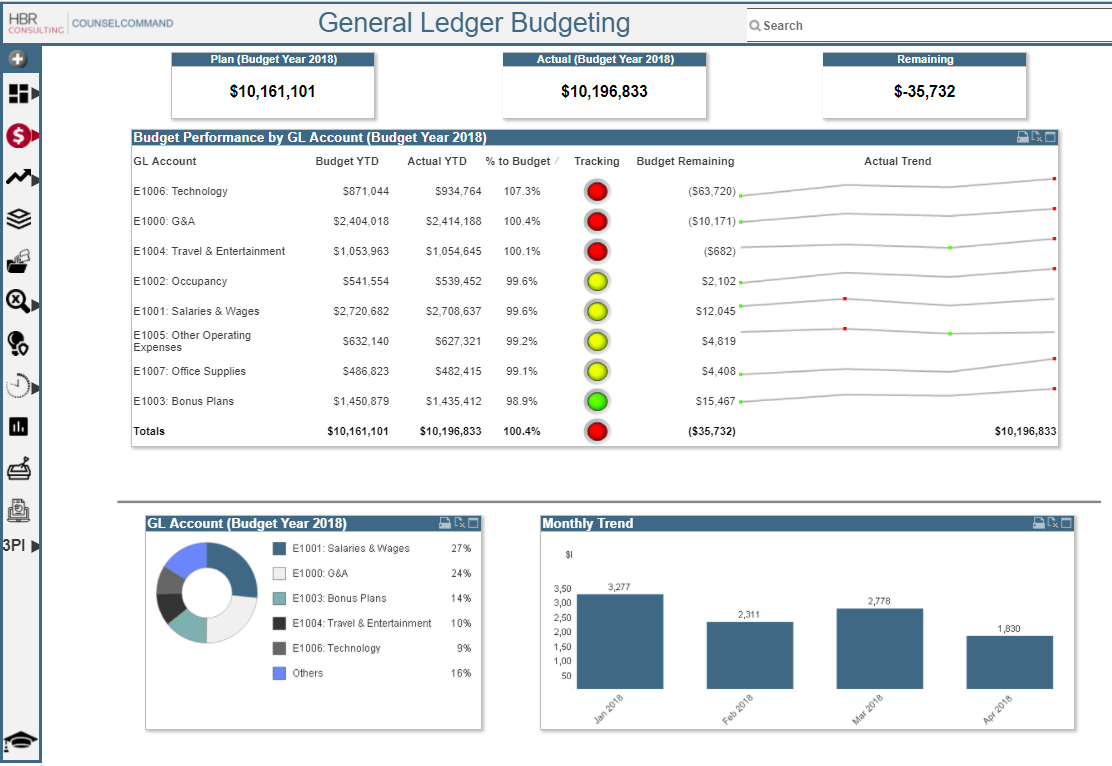This is the final article in a three-part series of blog posts designed to help corporate law departments take their operations up a notch. In Part One, we provided an overview of maturity models for six of the twelve CLOC Core Competencies that we reviewed with participants in HBR’s educational program at the 2018 CLOC Institute. The post invited readers to examine the models and conduct a self-evaluation to identify the level of maturity that best describes their current state. In Part Two, we shared specific insights for how departments in the “Foundational” stage can take the next step toward operating as an “Advanced” corporate law department.
In this post, we would like to dive into some practical suggestions for how those of you who self-identified in the “Advanced” category of the maturity models can take specific steps toward operating as a “Mature” department.
I. Strategic Planning
The key differentiator for Mature corporate law departments in this area is increased visibility and regular accountability for progress on the strategic plan at both the individual and departmental levels. It starts with developing a metrics-driven, multi-year strategic plan that flows from the company’s goals and objectives, and includes elements of department structure, operations, change management and culture. The strategic plan needs to be supported by a robust and comprehensive performance management program that tracks, monitors and reports progress on the strategic plan to drive continuous improvement. A final component of a Mature strategic planning process is tying the plan to team member performance objectives, with clear and direct impact on compensation.
II. Financial Management
The evolution from Advanced to the Mature stage with respect to financial management involves comprehensive analysis and centralized management of financials through the application of data analytics. Analytics is the process of transforming data into insights for the purpose of making better decisions. The goal of analytics is to gain knowledge that can be used to support improvements or changes.
The power of data analytics in financial management requires a focus on the total cost to the enterprise (e.g., internal, external, settlements, etc.) to formulate fully comprehensive budgets and forecasts. A centralized analytics dashboard can track targets for internal and external spend management, defined metrics that align with the department’s strategic plan. A Mature department will be guided by automated scorecards and alerts when key metrics are misaligned with defined targets.

III. Vendor Management
The key differentiator of a Mature corporate law department with respect to vendor management is the creation of value-based relationships that are achieved by consistently leveraging data to drive, manage and communicate performance. For instance, consolidating staffing down to core teams at a few law firms who know your business well; creating a Preferred Provider Program that uses historical data to determine the best fits for your organization’s needs; and establishing a well-defined, data-driven process to identify Alternative Fee Arrangement opportunities. A Mature department will rely on a centralized team, utilizing automated tools, to negotiate terms with vendors — and then share vendor scorecards both internally and externally as a common language for conducting regular performance reviews.
IV. Technology + Process Support
This area can be one of the most transformative for those departments seeking to take their operational management to the next level. There are a few steps that can be taken toward improvement in this area. A Foundational step is the development of a strategic technology roadmap. A Mature department will be guided by a five-year strategic roadmap for technology, which is aligned with both legal and business objectives, and includes a prioritization of key initiatives along with a detailed cost analysis to properly implement each component of the plan. The roadmap should strive to leverage market leading tools that are fully upgraded, as well as tools that enable more effective business process management.
V. Data Analytics
Integrating core legal technology systems with departmental reporting is a critical next step. More specifically, it is important to integrate business intelligence tools that relay performance against key effectiveness measures via dashboards and other data visualization mechanisms. To achieve that objective in a meaningful way, your data quality should be proactively validated through a combination of systematic features and data quality reporting.
VI. Knowledge Management
The final competency we discussed is one that CLOC maturity surveys have shown to be the least mature for three years running: the ever-elusive Knowledge Management. A key component to an effective Knowledge Management strategy is leveraging legal systems. While not a panacea in curing the knowledge sharing ailments from which most law departments suffer, systems play a crucial role in enabling effective knowledge management. Combined with processes, proper governance and resourcing, legal organizations can better improve the depositing, searching and meaningful retrieval of previous learnings.
Conclusion
As you strive to take your legal operations to the next level, remember that there is no shame in admitting that your department is in one of the less progressive stages. In fact, the truth is that most corporate law departments are under so much pressure within their organizations that their level of progress can be uneven from one category to the next.
The point is to honestly self-evaluate your department in these four major areas of department operations and then identify what specific changes you can make this year to move one rung up the ladder. To learn more about the law department operations maturity model, or for information on how to conduct a health check on your own department, please feel free to contact me.

